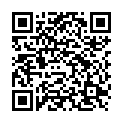|
|
|
| Module code: MP2106.BIOI |
|
4V (4 hours per week) |
|
6 |
| Semester: 1 |
| Mandatory course: no |
Language of instruction:
German |
Assessment:
Project and presentation
[updated 20.12.2017]
|
KI850 Computer Science and Communication Systems, Master, ASPO 01.04.2016
, semester 2, optional course, informatics specific
KIM-BIOI (P221-0152) Computer Science and Communication Systems, Master, ASPO 01.10.2017
, semester 2, optional course, informatics specific
MP2106.BIOI Medical Physics, Master, ASPO 01.04.2019
, semester 1, optional course
MP2106.BIOI Medical Physics, Master, SO 01.10.2025
, semester 1, optional course
PIM-WI57 Applied Informatics, Master, ASPO 01.10.2011
, semester 2, optional course, informatics specific
PIM-BIOI (P221-0152) Applied Informatics, Master, ASPO 01.10.2017
, semester 2, optional course, informatics specific
PIM-BIOI (P221-0152) Applied Informatics, Master, SO 01.10.2026
, semester 2, optional course, informatics specific
|
60 class hours (= 45 clock hours) over a 15-week period.
The total student study time is 180 hours (equivalent to 6 ECTS credits).
There are therefore 135 hours available for class preparation and follow-up work and exam preparation.
|
Recommended prerequisites (modules):
None.
|
Recommended as prerequisite for:
|
Module coordinator:
Prof. Dr. Gerald Kroisandt |
Lecturer: Prof. Dr. Gerald Kroisandt
[updated 29.11.2024]
|
Learning outcomes:
Students will be familiarized with several application areas of bioinformatics and will be able to efficiently solve typical problems such as the sequencing of genomes or the structure of proteins using algorithms.
[updated 20.12.2017]
|
Module content:
Computer-aided research in the natural sciences (biology, pharmacy, biotechnology,...) generates large amounts of data that must be archived and analyzed. This requires efficient algorithms.
First, the algorithms used in the sequencing of the human genome will be introduced in the lecture. Then, methods for the identification of genes (gene prediction) will be described. Hidden Markov models are an important part of this process. The methods discussed make it possible to predict the 3-D structure and function of proteins.
In conclusion, we will discuss the algorithms and procedures used by pharmaceutical companies in the computer-aided search for new active ingredients (computer-aided drug design).
1. Basics
2. Genome sequencing algorithms
3. Hidden Markov models
4. The application of hidden Markov models for the identification of genes
5. Protein structure predictions and databases
6. Computer-aided drug design
[updated 24.02.2018]
|
Teaching methods/Media:
50% of the lecture will take place in the PC lab AMSEL "Angewandte Mathematik, Statistik und eLearning". Computer-supported practical case studies will be worked through using the algorithms taught in this module.
In addition, the e-learning system ActiveMath: Statistics will be used to learn about topics from the field of stochastics, especially the Markov models.
[updated 24.02.2018]
|
Recommended or required reading:
BALDI, BRUNAK: Bioinformatics, The Machine Learning Approach
[updated 20.12.2017]
|

